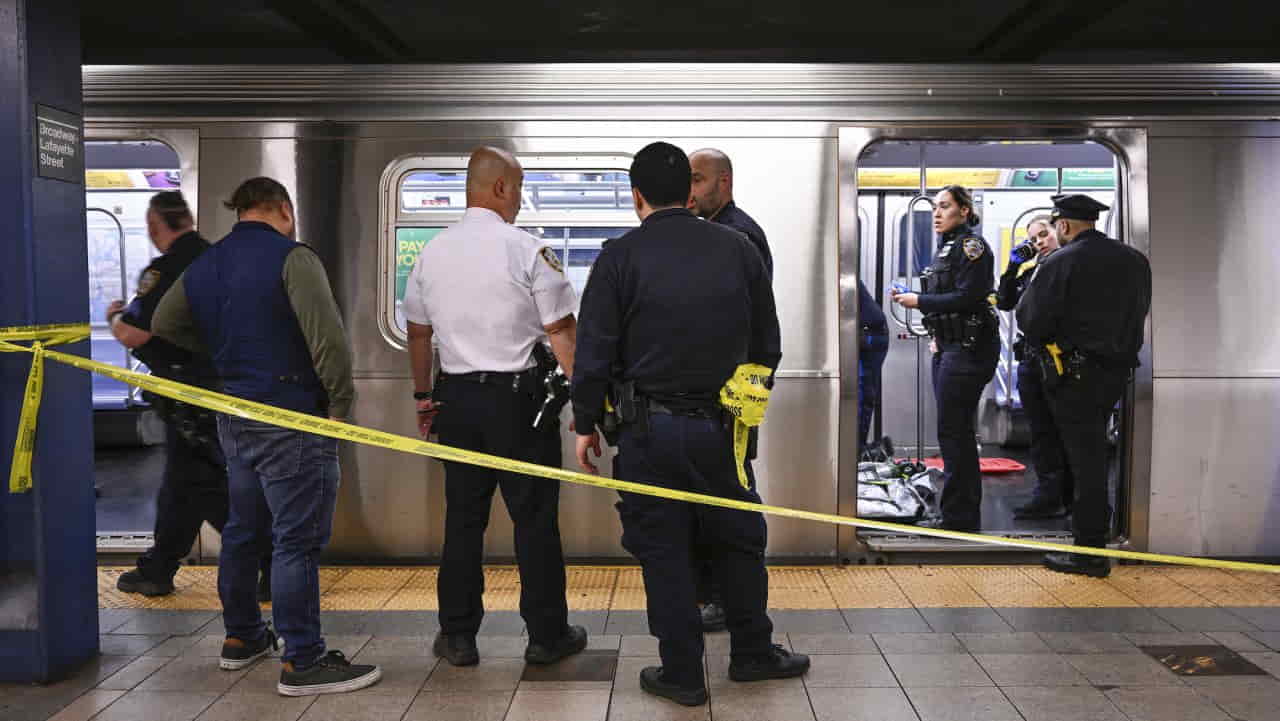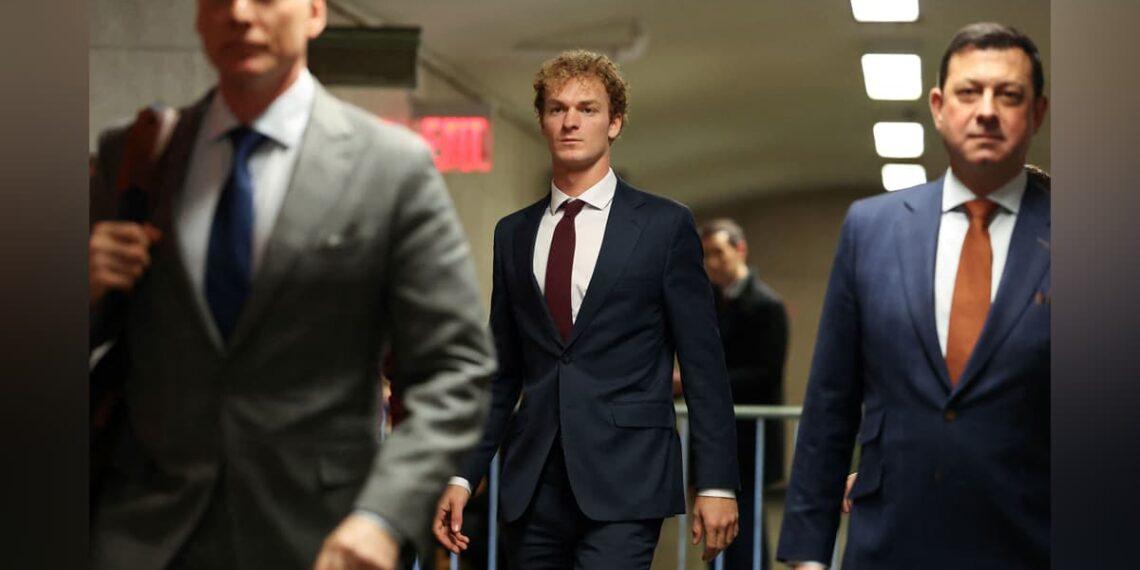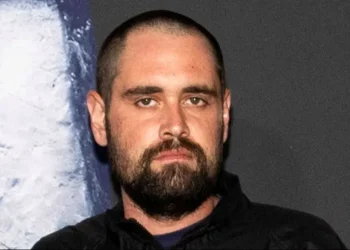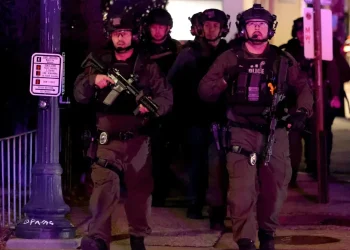Daniel Penny Acquitted in NYC Subway Death Case After Manslaughter Charge Dropped
A Manhattan jury has found Daniel Penny, a 26-year-old former Marine, not guilty of criminally negligent homicide in the death of Jordan Neely, a homeless street performer, on a New York City subway. The verdict, delivered Monday, comes after the dismissal of a more severe second-degree manslaughter charge last week due to a deadlocked jury.
Key Developments in the Trial
- Verdict Reached: The jury deliberated for just over an hour before acquitting Penny of criminally negligent homicide. This charge carried a potential sentence of up to four years.
- Manslaughter Charge Dropped: After 19 hours of deliberation over several days, Judge Maxwell Wiley dismissed the manslaughter charge on Friday at the prosecutors’ request.
Courtroom Reactions
The announcement of the not-guilty verdict was met with applause. Penny nodded in gratitude toward the jury, a visible smile on his face. Meanwhile, Neely’s father, visibly emotional, was escorted from the courtroom following an outburst of frustration.
The Incident
The case stemmed from a fatal confrontation on May 1, 2023. Witnesses testified that Neely, 30, boarded a subway car and began behaving erratically, throwing his jacket and shouting that he was hungry, thirsty, and unafraid of death. Penny intervened, placing Neely in a chokehold that he maintained for several minutes.
Bystander video, which went viral, showed Penny restraining Neely until he became unresponsive. Neely was later pronounced dead, and the city medical examiner ruled the cause of death as “compression of neck (chokehold).”

Polarizing Public Reaction
The case has divided public opinion. Advocates of Black Lives Matter have highlighted Neely’s death as a tragic consequence of systemic failures in mental health and racial justice. Meanwhile, others have praised Penny as a protector responding to a perceived threat on public transit.
Arguments from Both Sides
- Prosecution: Prosecutor Dafna Yoran argued Penny acted recklessly by using excessive force and holding the chokehold too long, even after Neely stopped moving.
- Defense: Penny’s attorneys contended he acted to protect passengers from what he perceived as a threat. They also challenged the medical examiner’s findings, suggesting Neely’s death was due to a combination of factors, including his medical history and drug use.
Penny himself testified he wasn’t trying to harm Neely but aimed to prevent him from hurting others.
Emotional Fallout
Neely’s father, Andre Zachary, expressed devastation at the verdict, calling the system “rigged” and questioning the jury’s decision. The family attorney echoed his sentiments, stating they were “devastated, upset, angry, hurt.”
Post-Verdict Reactions
After the trial, Penny and his legal team were seen celebrating at a Lower Manhattan bar. Defense attorney Thomas Kenniff shared a photo of the team raising drinks with the caption, “Thank you!!!”
Manhattan District Attorney Alvin Bragg defended the decision to bring the case to trial, emphasizing respect for the jury process. Mayor Eric Adams called Neely’s death a tragic reflection of a “broken” mental health system, urging systemic reforms to prevent similar tragedies.
Broader Implications
The case has sparked conversations about public safety, mental health, and the role of citizens in confronting perceived threats. With polarized opinions on Penny’s actions, the trial highlights the tension between vigilance and the boundaries of self-defense in high-pressure situations.
Civil Suit Filed
In a separate legal development, Neely’s father has filed a lawsuit accusing Penny of negligence and wrongful death. The suit seeks unspecified damages and alleges Penny’s actions were reckless and unnecessary.
As the legal and public discourse continues, the case remains a focal point for debates on race, mental health, and justice in New York City.
This article was rewritten by JournosNews.com based on verified reporting from trusted sources. The content has been independently reviewed, fact-checked, and edited for accuracy, neutrality, tone, and global readability in accordance with Google News and AdSense standards.
All opinions, quotes, or statements from contributors, experts, or sourced organizations do not necessarily reflect the views of JournosNews.com. JournosNews.com maintains full editorial independence from any external funders, sponsors, or organizations.
Stay informed with JournosNews.com — your trusted source for verified global reporting and in-depth analysis. Follow us on Google News, BlueSky, and X for real-time updates.














